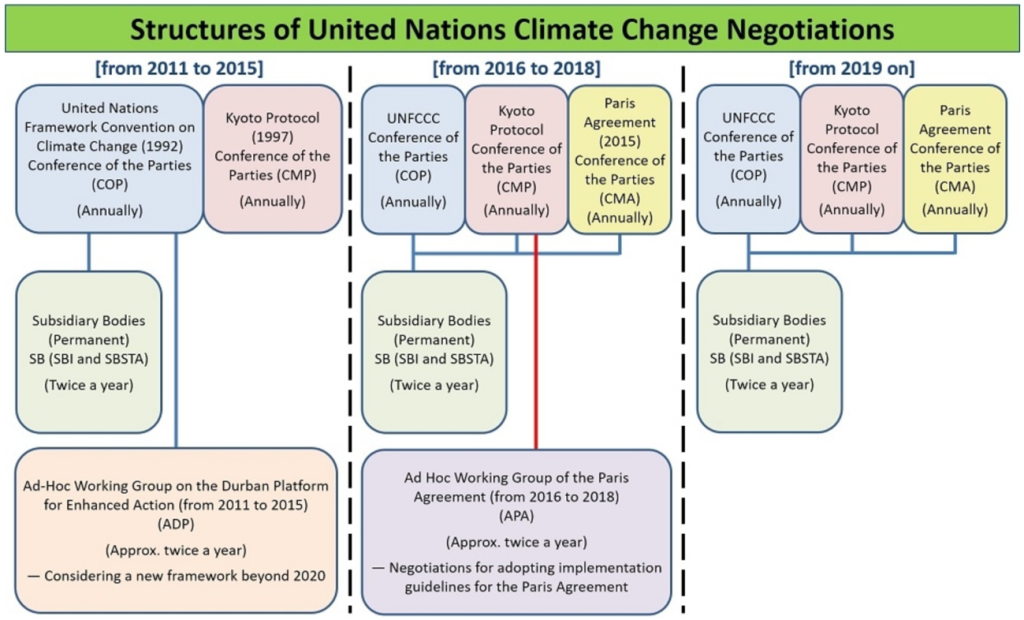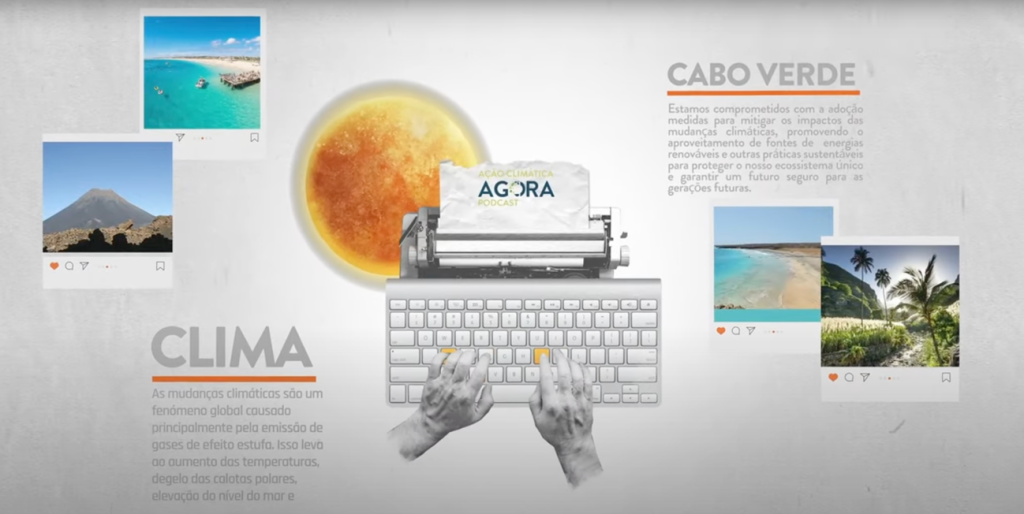In this newsletter we revisit some definitions linked to climate diplomacy, which we explored in the third issue, but also the definition of climate finance and podcasts.
The 29th Conference of the Parties to the United Nations Framework Convention on Climate Change (COP29), which will be held in Bacu, Azerbaijan from November 11 to 22, is known as the financing COP.
This is because it is at this session of the conference that the new global financing target is to be agreed, referred to as the NCQG – New Collective Quantified Goal1, which will replace the figure agreed in Copenhagen in 2009 and which amounted to 100 billion dollars to be transferred annually from developed to developing countries. According to the Organization for Cooperation and Development (OECD), this target was only exceeded in 2022, when it should have applied to the period between 20202.
For the new target to be set, various sources refer to figures in the order of billions of dollars and there are expectations as to how this gap will be bridged.
During the preparation of the first Biennial Update Report, Cabo Verde analyzed various bibliographic sources with the aim of defining the concept of climate finance appropriate to the country’s reality. As indicated in the BUR, the following definition was adopted:
“Climate finance is local, national or international funding from public, private and alternative sources to support actions to mitigate and adapt to climate change, in accordance with the United Nations Framework Convention on Climate Change (UNFCCC). It aims to reduce emissions and increase sinks of greenhouse gases, as well as reduce vulnerability and maintain and enhance the resilience of human and ecological systems to the adverse effects of climate change, as defined by the Standing Committee on Finance (SCF-CPF ) of the UNFCCC”.
From 2011 to 2015, the UN climate change negotiations were conducted at the Conference of the Parties on Climate Change (COP), the Conference of the Parties as the Meeting of the Parties to the Kyoto Protocol (CMP), the Subsidiary Bodies (SBs) and the Ad Hoc Working Group on the Durban Platform for Enhanced Action (ADP), which was set up to discuss the new framework beyond 2020. With the Paris Agreement, the Conference of the Parties was created as the Meeting of the Parties to the Agreement (CMA), which joined the COP, the CMP and the SBs and, following the conclusion of the ADP, the Ad Hoc Working Group on the Paris Agreement (APA) was created, which concluded its work in the CMA1 (adapted fromhttps://www.mofa.go.jp/ic/ch/page22e_000921.html).
According to the working version of Cabo Verde’s strategy for climate negotiations in the 2024-2025 biennium, the United Nations Framework Convention on Climate Change (UNFCCC), adopted in 1992, established an international environmental treaty with the aim of “stabilizing greenhouse gas concentrations in the atmosphere at a level that would prevent dangerous anthropogenic interference with the climate system”.

Source: https://www.mofa.go.jp/ic/ch/page22e_000921.html
The Paris Agreement, adopted in 2015, represents an important step forward in mobilizing a global response to the challenges of climate change, having set three long-term objectives:
- limit the increase in the global average temperature to well below 2.0°C and advance efforts to limit the increase to 1.5°C above pre-industrial levels;
- increasing the capacity to adapt to the impacts of climate change; and
- making all financial flows consistent with low-emission and climate-resilient development paths.
The COP brings together the signatory countries of the UNFCCC, the Kyoto Protocol and the Paris Agreement and is held annually to mobilize countries to sign agreements and make commitments to increase ambition and accelerate climate action.
COP28 took place from November 30 to December 12, 2023, at Expo City, Dubai, under the auspices of the Presidency of the United Arab Emirates and was the venue for the first Global Stocktaking (GST), the mechanism for reviewing global climate ambition every five years established by the Paris Agreement, and reached important conclusions on mitigation, adaptation, loss and damage and means of implementation.
COP29 will take place in Baku, Azerbaijan, from November 11 to 22, 2024 and COP30 will take place in Belém, Brazil, from November 10 to 21, 2025.
So what are COPs, SBs, CMAs, etc.?
| COP Conference of the Parties | The supreme decision-making body of the UNFCCC. All parties participate and analyze the implementation of the UNFCCC and take decisions. Typically meets once a year, alternating between the various continents. |
| CMP Conference of the Parties as the meeting of the Parties to the Kyoto Protocol | All Parties to the Kyoto Protocol participate in and review the implementation of the Protocol and take decisions. The CMP is held once a year. |
| CMA Conference of the Parties as the Meeting of the Parties to the Paris Agreement | All parties to the Paris Agreement participate in and review the implementation of the Agreement and take decisions. The CMA is held once a year. |
| SBs Subsidiary Bodies | There are two Subsidiary Bodies: (i) the Scientific and Technological Advisory Body (SBSTA) and (ii) the Implementation Body (SBI). SBSTA provides scientific and technological information and advice on the UNFCCC, the Kyoto Protocol and the Paris Agreement. The SBI assesses and analyzes the actual implementation of the UNFCCC, the Kyoto Protocol and the Paris Agreement. The SBs are held twice a year, namely in June in Bonn and then with the COP |
| APA Ad Hoc Working Group on the Paris Agreement | The APA was a subsidiary body that was set up after the adoption of the Paris Agreement for its entry into force and to prepare for the first meeting of the CMA. The APA discussed the guidelines for the implementation of the Paris Agreement and ended its function when CMA1-3 was closed in December 2018. |
| AMP Ad-Hoc Working Group on the Durban Platform for Enhanced Action | The ADP is a subsidiary body that was set up to (1) discuss the framework that will apply to all countries from 2020 and (2) discuss strengthening the mitigation ambition by 2020. The ADP ended its function at COP21 (end of 2015) when the Paris Agreement was adopted. |
And finally, what is a podcast?

A podcast is a series of episodes or programs recorded in audio and made available online. An important feature is that listeners can download the audio to listen to the content whenever and however they want, which makes this format increasingly popular in society.
Author
Inês Mourão,
Climate Action Program Coordinator
